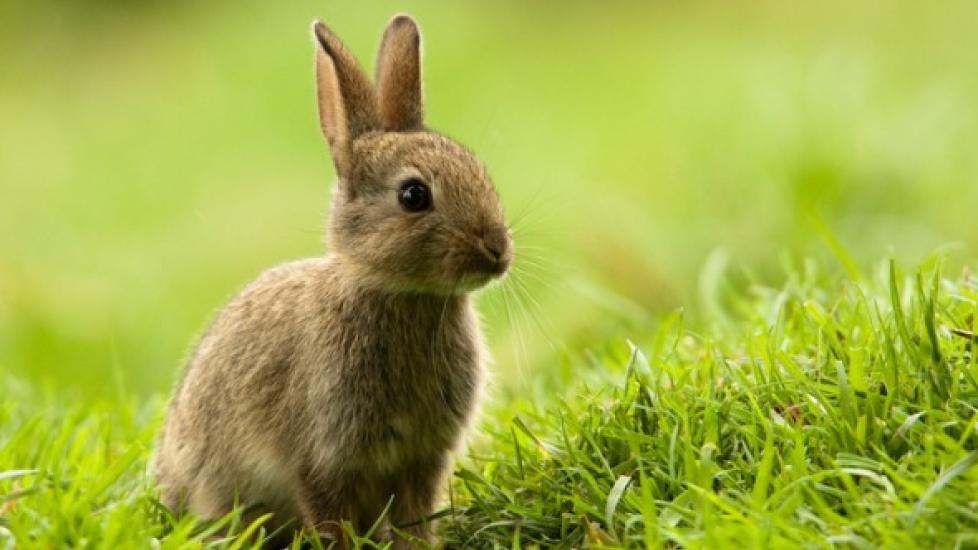Chronic Weight Loss and Tissue Wasting in Rabbits
Weight Loss and Cachexia in Rabbits
Weight loss in rabbits generally becomes a cause for concern when the rabbit loses ten percent or more of its normal body weight, and the weight is determined to be more than simply the loss of fluid. If the weight loss accompanies a wasting disease, referred to clinically as cachexia and exhibited by loss of body mass, muscle atrophy, and loss of appetite, or is related to a condition where the rabbit is in poor health, is not eating well, and is experiencing general weakness, the rabbit will require prompt attention by a health professional.
Symptoms and Types
The signs and symptoms may depend on the underlying cause for the weight loss and cachexia. General signs will include a thinning of the body, a reduced size and appearance, and weakness. Other signs and symptoms may include:
- Dental diseases or abscesses (infections)
- Drooling, bad breath or problems when eating
- Signs of gastrointestinal diseases, which may include a lack of fecal production
- Distension or abnormal bloating in the intestinal area around the stomach, suggesting gastrointestinal disorders
- Masses or foreign bodies present when touching, or “palpating” the abdomen
- Signs of pain, which may include grinding the teeth, a hunched over posture, or an inability to maintain an upright posture. Pain can reduce the odds of eating or may reduce the rabbit’s ability to process the foods it does eat
- Abnormal breathing sounds, heart murmurs or irregular heart rhythms
Causes
Although weight loss and cachexia share the common symptoms of weight loss, diagnostically they are different in the respect that simple weight loss may be resolved by feeding the rabbit more calories, where cachexia is a loss of weight that often cannot be resolved with nutritional remedies.
There are many different causes for weight loss and cachexia in rabbits. For example, increased metabolism can lead the body to use lean muscle for energy in order to fill the need for increased calories to carry out daily functions. Other causes can include gastrointestinal hypomotility, abnormally slow movement in the gastrointestinal system. Cachexia, with its wasting of muscles and body mass, and chronic loss of appetite, can have more severe underlying diseases that are causing it. These can include metabolic disorders like organ failure, or disorders that are associated with cancer.
Some other common causes may include:
- Dietary causes, including too little food or poor quality food (malnutrition)
- Neuromuscular diseases and pain, including degenerative joint disease
- Spinal problems including spinal fractures or luxations (dislocations)
- Joint or facila infections, which can cause malformations, leading to problems with eating
- Dental diseases, which can make eating difficult
- Central nervous system disorders that can contribute to anorexia (inability to eat, loss of appetite)
- Diseases that promote protein loss in the body
Diagnosis
You will need to give a thorough history of your rabbit's health and onset of symptoms, whether the loss of appetite is sudden (acute), or has been going on for an extended time (chronic). In order to begin to make a diagnosis, your veterinarian will first need to determine how much your rabbit ate prior to the onset of symptoms.
There are several possible causes for this condition, so your veterinarian will most likely use differential diagnosis. This process is guided by deeper inspection of the apparent outward symptoms, ruling out each of the more common causes until the correct disorder is settled upon and can be treated appropriately.
Some of the more obvious reasons will be ruled out, such as the possibility of dental disease, one of the most common causes for weight loss. Your doctor will also look for evidence of obvious infections or metabolic problems, including organ failure that can lead to inflammation. Diagnostic imaging, like ultrasound and X-ray, can be used to help identify masses or cancers in the body, diseases that that are well known for contributing to severe weight loss or inability to digest food. If the cause is linked to loss of protein, the urinalysis may return with evidence of excess protein in the urine, which is referred to as proteinuria.
Treatment
Treatment entails identifying and treating the underlying problems that result in weight loss. Care will be given to alleviate the symptoms while looking for the disease process that is causing the symptoms. Pain relief for cancer, and electrolyte replacement for dehydration and fluid loss will be given until your rabbit's health has stabilized. Most rabbits will be fed as soon as possible unless the diagnosis indicates otherwise. Your rabbit will be given a proper diet that includes plenty of fresh greens, or if the rabbit is unable to eat or keep food down, it will be fed using a supplementary method. Depending on your rabbit's health status and the severity of the underlying condition, you may be able to feed your rabbit using a feeding tube at home, or it may need to be cared for in hospital.
Living and Management
The prognosis for your rabbit will vary depending on the nature of the disease or disorder resulting in the weight loss. Often, when a disease has reached a state of cachexia, it has become severe and the prognosis is guarded to poor.
In all cases provisions for healthy feed will include fresh greens, and in some cases easily digestible vegetable baby foods may be warranted and highly advisable. Routine follow-up care may also be advisable to support the best possible outcome.
Frequent monitoring may or may not be needed, depending on the nature of the cause and the overall health and wellness of your rabbit.
Featured Image: iStock.com/DamianKuzdak
